By Ibidoyin Aina
Professional sports have evolved over the years from a mere tool of entertainment to a veritable means of economic empowerment. This evolution has since crystallized into robust legal relationships that have metamorphosed into standard player contracts duly negotiated by an accredited agent of the player and signed between the player and the club. Over time, case law has expanded the jurisprudence on the relationship between players and their clubs. Accordingly, the various participants in the club football value chain especially the athletes/players have now been viewed as employees. From the club managers, backroom staff, kitsmen etc have all now been accepted as employees of the club and governed by the principles of labour law. Accordingly, they are covered by the normal rules of employment law with regard to both the common law and employment protection legislation. One of the earliest employment law case was Union Royale Belge des Societes de Football Association (ASBL) v Bosman (C-415/93) [1996] All E.R. (EC) 97. Bosman was placed on the transfer list by his club, RC Liege, once he refused to accept a new contract at a lower wage. Bosman wished to move to a French club, US Dunkerque, but RC Liege ultimately refused to process the transfer as it doubted US Dunkerque’s ability to pay the agreed fee. Subsequently, the Belgian Football Association and UEFA became parties to the case as both bodies argued that their respective rules requiring transfer fees were lawful. The ECJ ruled that the transfer rules directly restrict access to the employment market in other Member States as under the applicable rules a player can transfer abroad only if the new club (or the player himself) is able and prepared to pay the transfer fee demanded. If that is not the case, the player cannot move abroad. This decision has not only revolutionized the labour jurisprudence in sports but positively impacted on the regulations on the status and transfer of players.
One of the earliest tests used to determine the employment status of players at common law was what is now technically referred to as the “control test”. Under this test, a person was controlled by an employer if that person was told not only what to do but also how to do it. Arguments that skills possessed by individual sportsmen took them beyond the control of clubs who paid them were quickly discounted as a result of the decision of the English Court of Appeal in Walker v Crystal Palace Football Club Ltd [1910] 1 K.B. 87. Modern employment law still requires an element of control for a person to have employee status, but emphasis is also given to other factors such as whether a person is in business on his or her own account. Therefore, it is clear that club managers, despite their technical status and authority over club matters, are also employees.
Employees are granted statutory employment protection rights including the right to claim unfair dismissal. Some professional sports participants such as snooker and tennis players are self-employed and therefore are not covered by general employment law, though they are protected by discrimination law. There are some statutory employment rights that are given to both employees and workers such as entitlement to be paid the national minimum wage and to be granted at least 28 days paid annual holiday. The issue of the living, as against the minimum, wage has been an issue in Scottish football. In the Nigeria Professional Football League, the minimum wage is pegged at =N=150,000.00 with issues of non-compliance by some of the clubs still being reported.
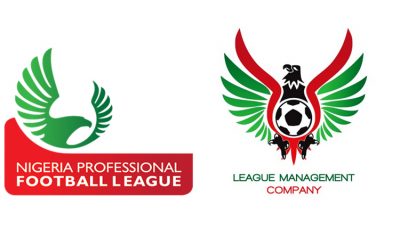
One of the notable spin-offs of the Bosman decision is the stability of contracts. The Nigeria Professional Football League now requires that player contracts shall not be less than three seasons. The only exceptions are the contracts involving minors and players who have played for 10 years or more in the league and therefore, can be offered contracts for 2 years and 3 months respectively.
This article poignantly highlights the role of the National Industrial Court in determining employment related disputes within the context of the FIFA Regulations on the Status and Transfer of Players.
EMPLOYMENT CONTRACTS IN SPORTS
Employment contracts in sports are typically entered into directly between a club and player. However, given the intricacies and complexities of the ensuing legal relationship, professional athletes now engage agents who conduct the negotiation of contract terms on the player’s behalf. Contract terms may also be derived from collective agreements entered into between a sport’s governing body and players’ trade unions. Major examples include footballers’ and cricketers’ contracts negotiated by the Professional Footballers’ Association and the Professional Cricketers’ Association respectively. Such standard contracts will be supplemented by confidential personal terms covering issues such as salaries, performance bonuses, sponsorship deals and image rights. The writer is unaware of any professional players’ union in the Nigeria Professional Football League and the extent of clout they wield in this regard.
Express terms in a player’s standard contract deal with issues such as fitness, exclusivity and discipline. Of particular importance are clauses which require players to obey both the rules of the club and relevant sporting bodies such as the Nigeria Professional Football League, NPFL. In addition to the foregoing, the NPFL Framework Rules contain appendices containing the code of conduct for the players. Typical professional football contracts equally contain clauses rendering it an offence for a player to bring the game into disrepute. From doping to fighting on the pitch, ready examples of instances where players have been sanctioned for their on/off field behavior include Adrian Mutu, Lee Bowyer and Kierian Dyer. Clubs have a lot of discretion in deciding the punishment to be imposed, and these range from fines, bans to dismissal. Typically, it will only be in the case of dismissal that litigation may occur.
The Dispute Resolution Provisions of the NPFL Rules
The Dispute Resolution Provisions under the NPFL Rules can be found in Section D of the Rules. Given the myriad of labour-related issues ranging from non-payment of salaries and sundry packages between players and their teams, it is little wonder then that the Rules stipulate that all labour-related disputes with a club over unfulfilled contract agreement or conditions of service shall in the first instance be submitted to the Arbitration & Dispute resolution Committee . The petitioner however must have issued the mandatory 30-day pre-action notice to the club before initiating proceedings before the disciplinary Committee of the LMC. The 30-day notice to the club is ostensibly to enable the club and the aggrieved player explore in-house dispute resolution mechanisms to reach amicable settlement. It is only when the parties fail to reach a compromise on the dispute that the jurisdiction of the Committee is activated.

By Article 4 of Section D of the Rules, the decisions of the Committee are final and binding on all parties concerned. Section E of the Rules provides for Appeals, Adoption & Enforcement. Thus, a party dis-satisfied with the verdict of the NFF Disciplinary Committee reserves the right to appeal to the NFF Appeals Committee; provided that where an appeal or election for hearing pursuant to a notice for hearing have been found to be frivolous, such party may be liable to such additional sanction as deemed fit in the circumstances. Every Appeal must indicate clearly and fully the grounds on which it is based and must be lodged in writing with the General Secretary of the NFF within 48 hours of receipt of the Disciplinary Committee. A remarkable introduction to the Rules is the provision relating to the mandatory payment of the sum of N500,000.00 (Five Hundred Thousand Naira) by the appellant for the prosecution of the appeal. Whilst this provision at first glance appears to be a deterrent against filing of frivolous appeals, it is clear that this provision could equally deter an appellant who has genuine and arguable grounds of appeal from proceeding with the matter. With the litigation window seemingly closed to such a party, the party’s right to action may as well be considered dead.
An aggrieved player who initiated proceedings before the disciplinary committee of the NFF and lost out on a technicality would need money to prosecute the appeal. In the event that the subject of the dispute revolves around non-payment of salaries and the player cannot prosecute the appeal on the grounds of impecuniosity, what remedy is left to such a player? Having apparently closed the window to litigation, such a player may never obtain redress for the rather self-serving and disingenuous argument that approaching the National Industrial Court for redress would be tantamount to violating the dispute resolution provisions of the NPFL Rules.
The NPFL Rules, interestingly, contain supplemental provisions incorporating salient provisions of the Labour Act as well as the FIFA regulations on the Transfer and status of players. These provisions ensure that some of the employment issues that arise from the day to day administration of every football club are given a holistic attention. Even though, the dispute resolution provisions of the NPFL Rules have not expressly mentioned the RSTP, the regulations are impliedly incorporated in the provisions since member associations of FIFA are required to ensure compliance by their clubs.
The power of the National Industrial Court to determine employment related disputes is inviolable.
A lot has been said about FIFA’s enforced arbitration process rooted in the dispute resolution provisions of the NPFL Rules. Proponents of this position argue that an aggrieved player or party under the NPFL rules cannot take employment related disputes to the regular courts. This argument is not only self-serving and disingenuous, it is also completely unfounded. Under Nigerian law, it is only the courts that can enforce arbitral awards. Accordingly, where an award has been rendered in favour of a party on an issue involving employment related disputes, that party is expected to approach the National Industrial Court to enforce the award. Therefore, the current state of helplessness of players and clubs in the NPFL over enforcement of awards issued by the NFF Arbitration Committee is not only unnecessary but a misunderstanding of the dispute resolution provisions of the NPFL Rules.
It is pertinent at this juncture to examine albeit briefly, the provisions of Article 22 of the RSTP.
“Without prejudice to the right of any player or club to seek redress before a civil court for employment-related disputes, FIFA is competent to hear:
a) disputes between clubs and players in relation to the maintenance of contractual stability (articles 13-18) where there has been an ITC request and a claim from an interested party in relation to said ITC request, in particular regarding the issue of the ITC, sporting sanctions or compensation for breach of contract;
b) employment-related disputes between a club and a player of an international dimension, unless an independent arbitration tribunal guaranteeing fair proceedings and respecting the principle of equal representation of players and clubs has been established at national level within the framework of the association and/or a collective bargaining agreement;

c) employment-related disputes between a club or an association and a coach of an international dimension, unless an independent arbitration tribunal guaranteeing fair proceedings exists at national level;
d) disputes relating to training compensation (article 20) and the solidarity mechanism (article 21) between clubs belonging to different associations;
e) disputes relating to the solidarity mechanism (article 21) between clubs belonging to the same association provided that the transfer of a player at the basis of the dispute occurs between clubs belonging to different associations;
f) disputes between clubs belonging to different associations that do not fall within the cases provided for in a), d) and e)”.
It is conceded that the relevant provisions of the Regulations reproduced above, apply to transfers of an international dimension, the philosophy underpinning the determination of employment related disputes applies mutatis mutandis (with equal force) to employment related disputes of a domestic nature. This conjecture is evident from the silence of the NPFL Rules on the role of the courts in determining such disputes. If the intention of the drafters of the Rules was to exclude the courts completely, that intention would have been expressly stated in the provisions. As stated, Article 22(b) contemplates two scenarios, namely; an employment related dispute between a club and a local player and an employment related dispute between a club and a foreign player. In both scenarios, the inalienable rights of access to court by the players are robustly acknowledged.
Dispute between a Non-national and a Nigerian Football Club
As stated in Art 22(b) of the FIFA Regulations on Status and Transfer of Players (RSTP), football federations are expected to set up Dispute Resolution Chambers (DRC) to handle employment-related disputes between a non-Nigerian player and a Nigerian Football Club at National Level. This provision appears to sanction the approach by the player to a court in the first instance. The provision however recognizes that where an ad hoc arbitral tribunal guarantees its independence and fair trial to the foreign national, such proceedings can be commenced therein.
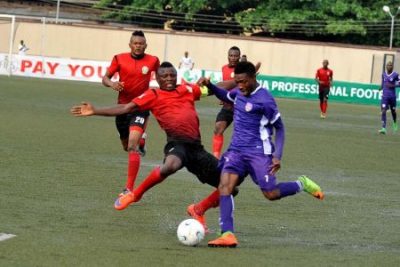
Put differently, this means that non-nationals who play in a Nigerian club can ventilate their grievances before the Dispute Resolution Chambers set up in the country they play in i.e. Nigeria. This Dispute Resolution Chambers in Nigeria is the NFF Arbitration Committee It is interesting to note that all employment-related disputes brought before the DRC do not attract filing fees (Art 25.2 of the RPST). The only cost the player may incur is the professional fee the Attorney may charge in representing him. This is clearly against what obtains in practice where an unsuccessful disputant would be required to lodge the sum of =N=500, 000.00 before the appeals committee in order to lodge an appeal.
Such claim against any club must be filed within two (2) years of the cause of action, to avoid it becoming statute barred. After the player has obtained judgment against the Nigerian club, the DRC gives the club an ultimatum (usually 45 days) within which the club must pay the judgment sum (money) even if a recent decision of the National Industrial Court seems to suggest that Statute of Limitation is no longer applicable to employment contracts.
Before now, in the event that the club fails to pay within that period, the defaulting club was usually referred to the FIFA Disciplinary Committee which may then fine the club, ban the club from signing players, deduct points from the club’s accumulated points, or even ban the club from football competitions until the club complies.
However, after the introduction of the 2018 RSTP which became effective from June 2018, the Dispute Resolution Chamber has the power to include sanctions in its decisions without the need to refer the case to the Disciplinary Committee on the grounds of non-compliance by a club which can include a ban from registering any new players, either nationally or internationally.
It is however submitted that the foregoing does not detract from the successful party’s right to approach the National Industrial Court to enforce the award. Even though the Arbitration and Conciliation Act only recognizes the High Court, State or Federal as the only courts which can enforce an arbitral award, Section 254 (C) of the 1999 Constitution which vests original and exclusive jurisdiction on the National Industrial Court in respect of employment matters suggests that it is only the National Industrial Court that can hear such application.
Dispute Between a Nigerian and a Nigerian Football Club
Where an Employment-related dispute arises between a Nigerian Player and a Nigerian Football Club, such dispute cannot be taken to the Dispute Resolution Chamber. It is rather expected that the matter be handled by the NFF Arbitration Committee. In practice, the NFF Arbitration Committee is the Nigerian equivalent of the Dispute Resolution Chamber since they undertake the same functions.
Upon such request made by the player, the NFF Arbitration Committee would give a decision usually called an arbitral Award and order the defaulting club to pay the player, or face sanctions similar to the ones meted out by the FIFA Disciplinary Committee.
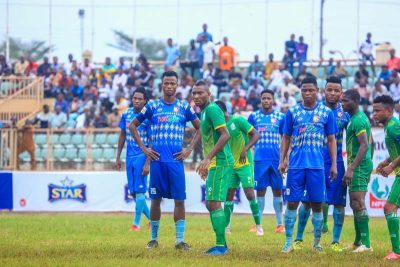
The Enforcement Conundrum under the NPFL Rules- Concluding thoughts
Article 7 Section D of the Rules purports to preclude resort to litigation as a dispute resolution option. Article 6 of Section D of the Rules empowers the LMC to withhold monies accruing to a defaulting club for the purpose of settling a judgment debt. It is difficult to imagine the category of funds accruing to a defaulting club that can potentially offset such debts nor whether such funds are substantial enough to settle such obligations. This becomes more evident when it is realized that a large chunk of the clubs’ revenue comes from gate fees and sponsorship deals. How the LMC can get hold of such revenue accruing to the clubs beats the imagination. Interestingly, there is no maximum penalty stipulated in respect of such defaulting clubs. The Rules merely stipulate that the failure to comply with any decision of the Arbitration Committee “may” cause the club to be expelled from the league. The operative word ‘may’ suggests that this is entirely discretionary. The only known case of outright expulsion from the Professional football league is that of Giwa FC of Jos who were expelled as a result of their unexplained boycott of three successive games in contravention of the LMC Rules. The LMC is yet to wield the big stick in this regard in respect of clubs flouting their financial obligations. The writer wonders where the LMC would derive its coercive powers if not already provided for in its enabling statute. The LMC strangely, has been very effective in exacting punishments on clubs for infraction of its Rules regarding control of the fans, assault of match officials and boycott of matches. Penalties ranging from N10,000,000, N5, 000,000 etc have been imposed and enforced against such clubs. Why then does the LMC appear powerless in regulating club-player relations?
It has been observed that most of the NPFL clubs do not comply with the decision given by the arbitral committee thereby leaving the successful party in a quandary. The NPFL has not replicated the serious sanctions provided under the RSTP. It is hoped that the Rules would be reviewed to address this lacuna. The NPFL and the LMC have both been criticized for lacking the needed ‘teeth’ of enforcement. This criticism is predicated on the seeming lack of political will to enforce its awards. Even though there is a plethora of provisions in the NPFL Rules that empowers them to levy sanctions against erring clubs, the seeming oversight in providing a remedy for the successful disputant who is yet to reap the fruits of his success, remains a mystery. Awards dating back to 2010 have been found to have been either abandoned or altogether overlooked by the successful party owing to the enforcement dilemma under the NPFL Rules. Successful parties are urged to take advantage of the powers of the National Industrial Court in not only enforcing the awards of the NFF Arbitration Committee but in initiating proceedings in the first instance where the Committee fails and/or refuses to sit to determine genuine employment related complaints made to it.
References
1. http://www.researchgate.net/publications,
2. http://www.dailyrecord.co.uk/sport/football/football-news/scottish-football-living-wage-anger-5716830.
3. See Section D, Art 1 of the NPFL Rules.
4. Section D, Art 3 of the NPFL Framework Rules 2015/2016.
5. See Article 2, Section E of the LMC Rules.
6. Article 5 of Section D of the LMC Rules, 2014
7. Vanguard Newpapers, May 19, 2016.
Ibidoyin Aina is an Associate in the Sports and Entertainment law Group of Perchstone and Graeys LP, Lagos.
Got what it Takes?
Predict and Win Millions Now






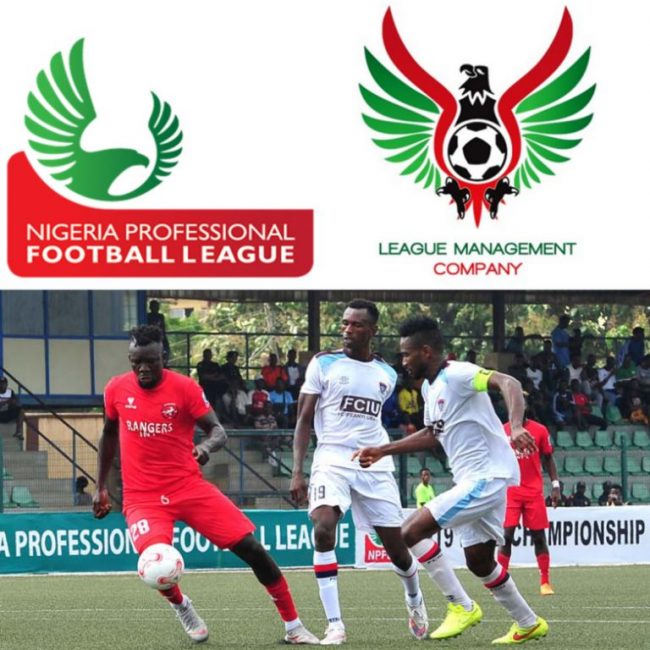
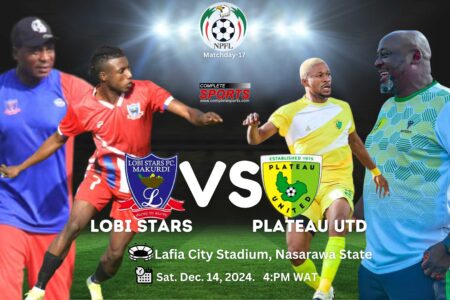
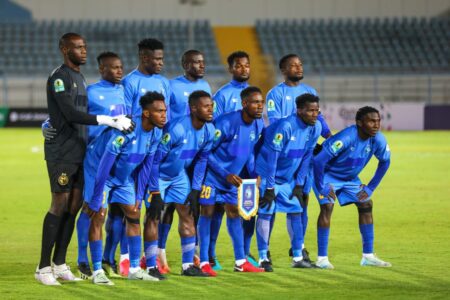




10 Comments
THis is very well detailed and apt. The writer speaks with so much knowledge and a tad bit of facts. Very educative
Very educative and illuminating. I learnt a lot from this post and I’m sure a lot of footballers do not know half of this.
Hope to see more articles like this.
Good job
Geeezzz! You gave us too much at once!. So many issues discussed and distilled. Well written ‘Doyin, great job.
Very informative….Great write up
So insightful, this is makin me consider doing sports law. It’s clear a lot of research was done on the article.. Never even knew the minimum pay for Naija players was 150,000 and they must be signed for 3 seasons…
Great job the writer of this article did… weldone!
A very very educative write-up. Kudos to the writer for handling such a wonderful information to us on a platter. Thanks.
This is well researched and beyond excellent!
This is a highly insightful and entertaining piece to read. Kudos Doyin, keep shinning.
This is well articulated, very insightful and educative. It’s obvious that football authorities in Nigeria are guilty in tackling issues relating to law. This beautiful article is directed to all club owners/ managers, coaches, agents as well as footballers in Nigeria. Good one
The informative content of this article is really superb. Best essay I’ve read in a while.